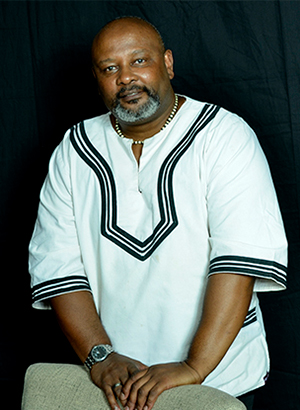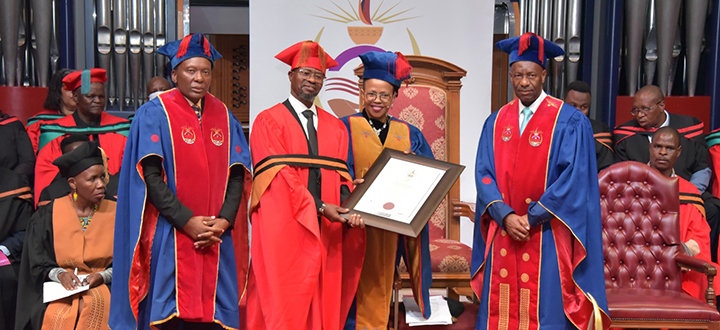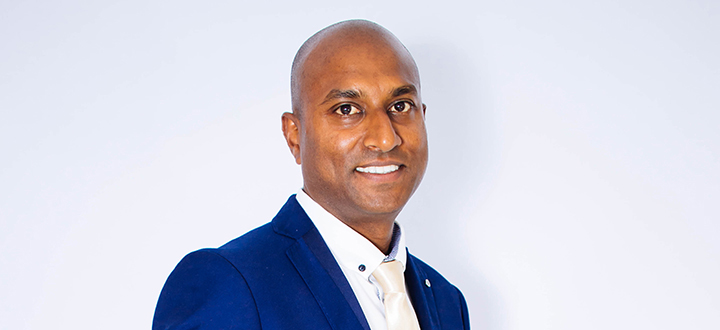News & Media
Applying decolonisation and Africanisation to revive heritage

Prof Vuyisile Msila
Highlighting that heritage is about the inherited sense of identity, including the values and traditions emanating from previous generations, decolonial scholar Vuyisile Msila, a professor of Public Leadership Studies at Unisa’s Thabo Mbeki African School of Public and International Affairs, states: "Africans are still grappling with understanding and embracing their heritage. It has been a long journey from precolonial Africa to where we are."
Msila’s publications include Ubuntu: Shaping the Current Workplace with (African) Wisdom (2015) and Developing Teaching and Learning in Africa: Decolonising Perspectives (2020).
Msila maintains that the years of colonialism and apartheid robbed Africans of their history, culture, languages and heritage. "The debates that we currently have demonstrate the desperation we have in trying to connect to that heritage," he says. "In South Africa, the education system has supported Western-oriented education that dehumanised some knowledges that represented African heritage. Africans will not fully embrace their own heritage without decolonising knowledge."
Msila says that heritage will be fully realised if communities can address the colonial damage such as the killing of indigenous cultures, African history and indigenous languages. He points out that what needs to be taken into cognisance is centring the marginalised African knowledges and heritage.
He criticises the perception that Africa had no history until Europeans arrived and started writing its history. He says: "Africans need to revive their heritage whilst not forgetting the various heritages that have influenced and have been influenced by Africa over the centuries."
Africanising education and embracing heritage
Msila emphasises the need to Africanise and decolonise the South African education system. "Es’kia Mphahlele talked of a need for an African personality in our education system, whilst Bantu Steve Biko reminded us of a need to underscore this heritage in education," he says. "Biko pointed out that at school, black children are presented with a negative portrayal of their heritage, hence they find comfort in identifying with Western-oriented philosophies. The African kingdoms, languages and pride need to be embraced by people who seek to be connected to their heritage."
Msila notes: "Because people are keen to move towards modernity, they are reticent to connect their children to their forebears’ cultures, traditions and history. People cannot pass on their heritage when they are, for instance, embarrassed by their own languages." He discourages African parents from being exhilarated when their children tend to know other cultures and languages better than their own.
Turning attention to religion and spirituality, Msila explains that religion did change cultural practices, thus moving Africans away from their heritage. According to him, religion, like culture and language, define the identity and soul of a people. "Even those who were not religious but spiritual, had a sense of purpose that was supported by their heritage and identity," he says. "For instance, the connection to a philosophy such as Ubuntu reflects a kind of spirituality that connects one to self, others, the community and nature, which is linked to African heritage."
Msila says: "With the advent of colonialism and Western religion, African religions were relegated to mere superstitions and branded as inferior and barbaric. When we reflect on history, the colonists questioned indigenous religious leaders such as Makhanda kaBhalala and Isaiah Shembe. The Westerners made the indigenous people believe that there was a God for the West and gods for Africa. However, now we know that people may be using different ways of worship, but the Supreme Being may be one."
Understanding the richness of Africa
Msila argues that although Africa’s inhabitants are among the poorest in the world, Africa is one of the richest continents and can only rise when ills such as corruption and leadership failures end. However, he says that if Africans want to understand this better, they need to dig deep into what the coloniser sought to achieve including underscoring differences between blacks and whites. He remarks: "As Ali Mazrui points out, blacks were linked to sin by the 15th century." Msila believes that Africans need to redeem themselves from the shackles of colonialism that continue to chain their minds.
For Msila, Africans can stay connected to their heritage by, among others, using education to transform society to be conscious of culture and heritage, understanding African history and applying the concepts of decolonisation and Africanisation. He also says that African societies need intellectuals who have embraced, among others, the pan-African ideals. He concludes: "If we take national unity seriously, we should start with heritage consciousness."
* By Nancy Legodi, Acting Journalist, Department of Institutional Advancement
Publish date: 2021-09-30 00:00:00.0

 Young Unisa science stars join elite Lindau Nobel Laureate group
Young Unisa science stars join elite Lindau Nobel Laureate group
 Education MEC addresses Unisa autism seminar
Education MEC addresses Unisa autism seminar
 Seven Unisans nominated for the NSTF-South32 Awards 2023/2024
Seven Unisans nominated for the NSTF-South32 Awards 2023/2024
 Unisa awards posthumous honorary doctorate to literary maven, OK Matsepe
Unisa awards posthumous honorary doctorate to literary maven, OK Matsepe
 From humble beginnings to academic leadership
From humble beginnings to academic leadership